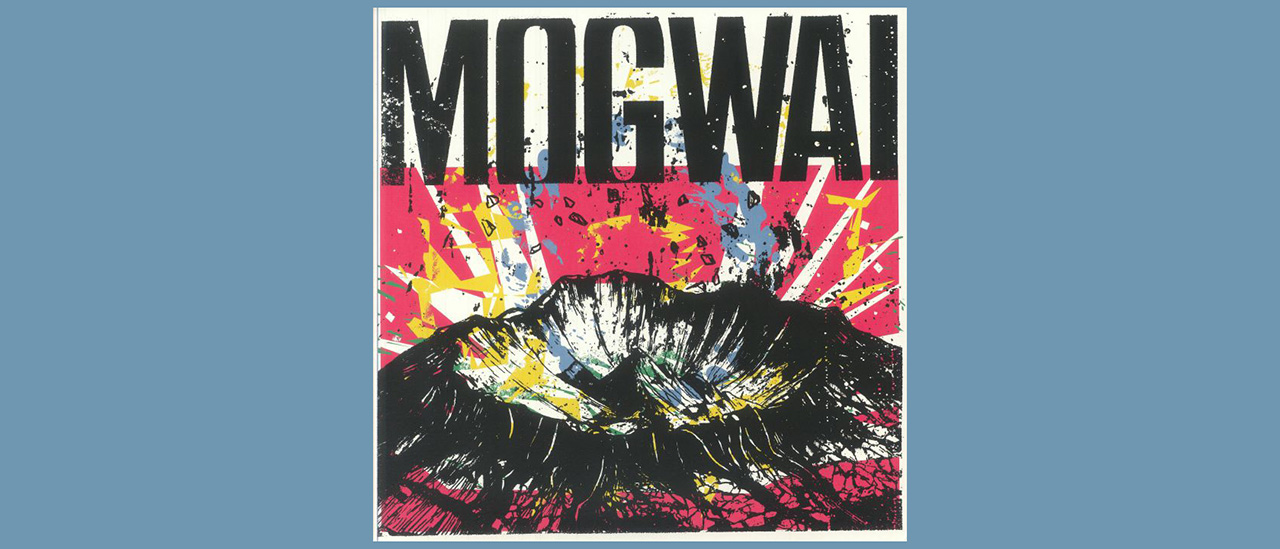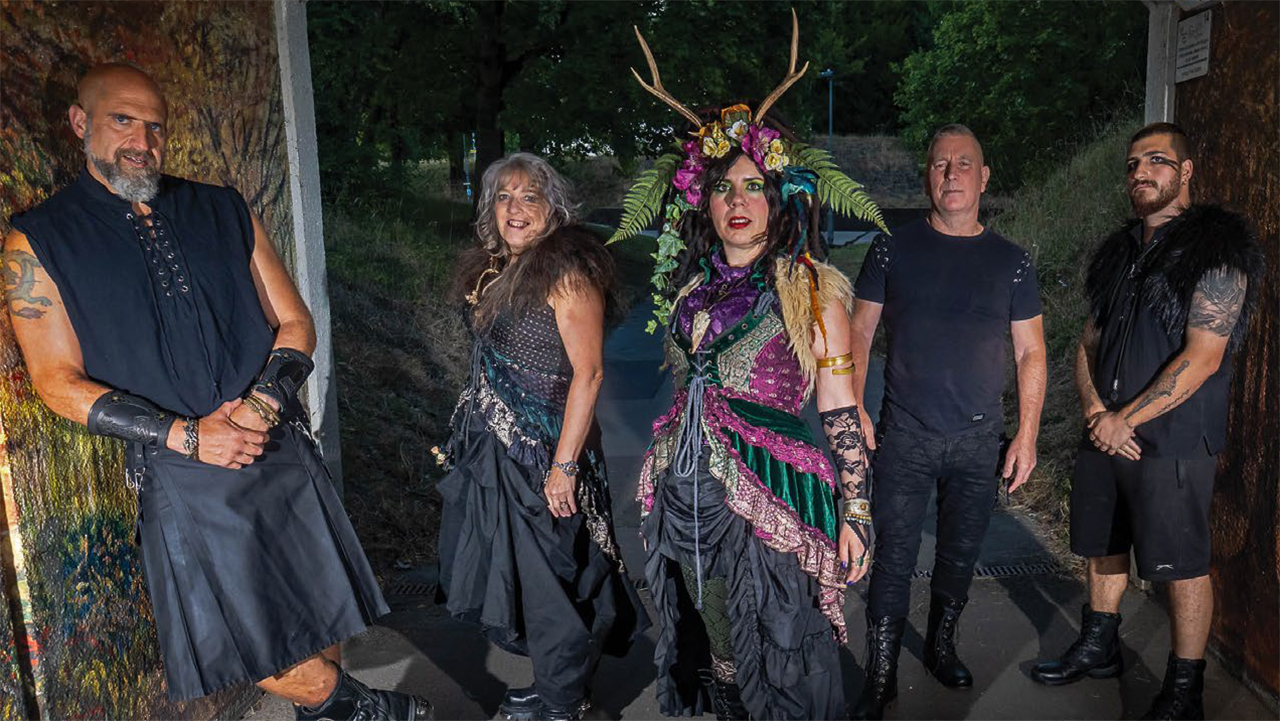You can trust Louder
A sensitive behemoth, hulking yet graceful, Mogwai’s 11th album arrives with the Glaswegian band bearing a higher profile than at any time during their three decades of delicacy and disruption.
Its predecessor, 2021’s As The Love Continues, became a UK No.1 hit, which they found “totally surreal.” Recent documentary If The Stars Had A Sound wisely chose not to analyse what it is about the band’s noise which moves so many so deeply. Mogwai aren’t the types to pontificate earnestly about creating effervescent rainbows of liminal meaning or somesuch. The key to their alchemy is to not overthink what they do.
Any lyrics are half-heartedly, almost sheepishly, mumbled, all but inaudibly, and the musical structures ebb and flow as they see fit, rather than following conventions. Mogwai’s progressive instincts have always taken an intuitive path. It’s seen them labelled as everything from post-rock to shoegaze to “epic prog rock without the widdly-woo solos.”
Ironically, there’s actually one rather startling widdly-woo guitar solo here, on the atypical track Lion Rumpus; but it’s tackled with such mischievous venom that it enters another dimension, conveying something between a cry for help and a feral cat clawing its way out of the speakers.Truth is, the sound of the quartet is progressive in a primal way – a healthy counterpoint to mainstream conservatism.
They’ve also developed a side hustle with soundtracks, scoring off-centre films and TV series. The experience gained on those projects informs the fuming, fluttering The Bad Fire, which, like them, swings between the sinister and the sanguine. Their 2024 remix of The Harmony Codex for Steven Wilson’s Harmonic Divergence experiment us the most intense thing on there, and hosts a similar seriousness of DNA to spells herein.
American producer John Congleton doesn’t fix anything that isn’t broken
This album doesn’t try to “reinvent” Mogwai at all; it very much does what they do. Where other bands may have thought an unlikely chart-topping feat required lurching into a new chapter to prove some kind of point, or throwing their curtains wide to the daylight and welcoming the world in, Mogwai double down on their curiously uplifting dourness. They retreat, here, to their discomfort zone.
Neither does American producer John Congleton – who’s worked with everyone from The War On Drugs to Explosions In The Sky to Blondie – fix anything that isn’t broken. As the opening track God Gets You Back confidently builds as only Mogwai build – one can never quite predict what’s coming – it moves a keyboard motif reminiscent of Ryuichi Sakamoto’s Merry Christmas, Mr Lawrence theme into a forceful rumble of what’s undeniably shoegaze. These flavours of My Bloody Valentine or Slowdive resolve, up to a point, in sludgy bass nuances.
Sign up below to get the latest from Prog, plus exclusive special offers, direct to your inbox!
“The bad fire” is a Glaswegian expression for Hell, and the band have spoken of tough personal times since Covid. William Blake was apparently an inspiration. Mogwai’s music, much as it strives for otherworldly transcendence – whether they’d admit it or not – doesn’t attain the states of rapture found in the work of Sigur Rós, a group with whom they’re often aligned. But there is relief amid the gravitas.
As an actual song threatens to materialise, it’s deliberately buried in the mix… the background, for Mogwai, is the foreground
Hi Chaos hugs Banshees-style goth, with John McGeoch-style guitar lines, though they become shrill and excitable as the track scorches to its climax. What Kind Of Mix Is This? marches steadily into gloom until a two- note piano motif chirrups like a small bird traversing its cloudy skies.
There’s a blast of buzz-saw guitar as Fanzine Made Of Flesh kicks in, but then as an actual song threatens to materialise, it’s deliberately buried in the mix, with emphases placed instead on the entrance or exit of various guitars or keyboards. The background, for Mogwai, is the foreground.
There may be a lick of PFM or Tangerine Dream in the pensive washes of Pale Vegan Hip Pain, but the lengthy If You Find This World Bad, You Should See Some Of The Others shifts from gentleness evoking The Durutti Column or Steve Hackett’s pastoral side into an abrasive eruption more akin to King Crimson at their most aggressive, before settling into a folky respite.
The last phase of 18 Volcanoes is within touching distance of a white noise drone, while Hammer Room – one of the upbeat detours – channels John Carpenter after too much fizzy pop. Lion Rumpus, though, is the real tempo-raising barnstormer, roaring until it skids off into a reconstruction of a car crash.
Fact Boy, the finale, is the band’s doggedly nebulous sound at its most shapeshifting – committed to not committing, a distant descendant perhaps of Floyd’s Echoes. As it unfolds, a high voice can be heard among the crunching ice floes, possibly an angel emerging from the rubble. Heaven or Hell, the bad fire, as lit by Mogwai, always offers a flame of hope.
The Bad Fire is on sale now via Rock Action.
Chris Roberts has written about music, films, and art for innumerable outlets. His new book The Velvet Underground is out April 4. He has also published books on Lou Reed, Elton John, the Gothic arts, Talk Talk, Kate Moss, Scarlett Johansson, Abba, Tom Jones and others. Among his interviewees over the years have been David Bowie, Iggy Pop, Patti Smith, Debbie Harry, Bryan Ferry, Al Green, Tom Waits & Lou Reed. Born in North Wales, he lives in London.





